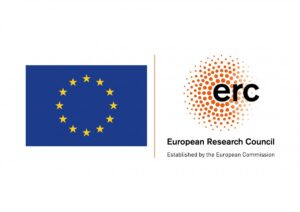The Congo-Ubangi watershed :
An interdisciplinary approach to the genesis of a linguistic accretion zone in Central Africa
CongUbangi is a 5-year program (2024-2029) funded by a Starting Grant (n° 101116562) of the European Research Council (ERC) under the European Union’s Horizon 2020 research and innovation programme, awarded to the project’s Principal Investigator, Prof. Sara Pacchiarotti (UGent). It is hosted at the UGent Centre for Bantu Studies and involves close collaboration with the Human Evolutionary History in Africa lab of the Department of Ecology and Genetics at Uppsala University (Sweden), the UGent Wood-Lab (Belgium), the Institute of Archaeological Sciences of Goethe University in Frankfurt (Germany), the Institute of National Museums of Congo (DRC), the University of Kinshasa (DRC), and the Instituts Supérieurs Pédagogiques in Kinshasa, Gemena, Gbadolite, and Lisala (DRC), among others.
